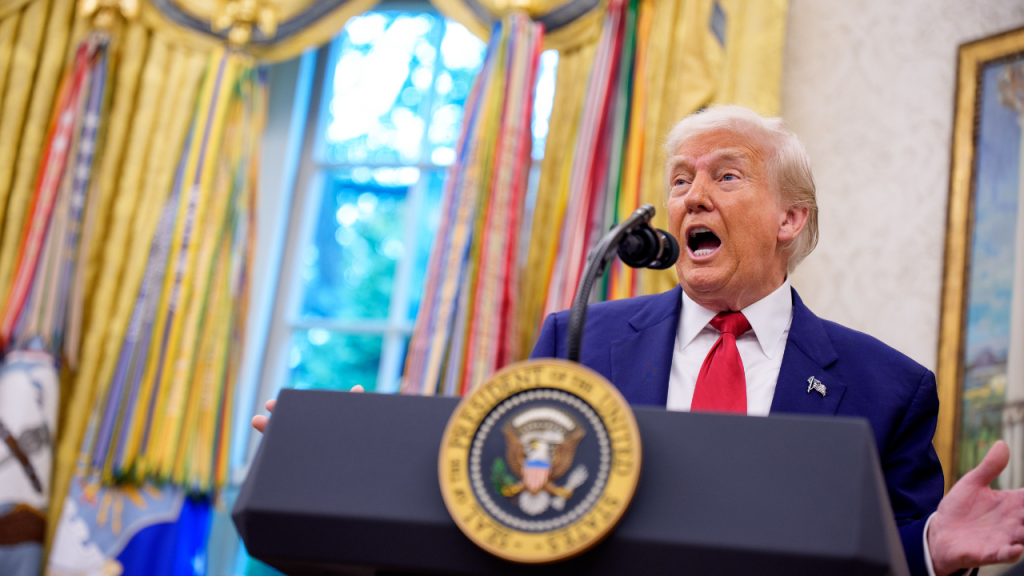
What Is the ‘TACO Trade’ and Why Is It Trending?
This nickname has captured attention because it highlights a growing frustration among market watchers who see a repeated cycle in Trump’s approach to trade. The president often makes bold tariff threats — such as imposing a 145% tariff on Chinese goods or proposing a 50% tariff on imports from the European Union (EU) — only to reverse or soften these decisions later, usually after seeing a negative market reaction.
Trump’s Reaction to the ‘TACO Trade’ Label
During a White House event in late May 2025, when a reporter directly asked Trump about the “TACO trade” label, the president visibly bristled. He dismissed the phrase as a “nasty question” and firmly defended his trade tactics. Trump explained that his moves are part of a negotiation strategy designed to bring other countries to the table. “It’s called negotiation,” he said, stressing that these tariff threats are bargaining tools, not fixed policies.
How Investors View the ‘TACO Trade’ Cycle
Despite Trump’s denial, the “TACO trade” concept has gained traction among investors, who have learned to anticipate this cycle. They observe that when Trump announces harsh tariffs, markets often dip in reaction, but once he delays or softens the measures, markets rebound. This pattern has created trading opportunities, with some investors capitalizing on these temporary market dips and recoveries.
A clear example occurred when Trump announced a proposed 50% tariff on goods from the EU. The initial market response was a sharp decline. But when the administration later pushed the implementation date to July 9, markets quickly bounced back, showing how these tariff announcements influence investor sentiment.
The Spread of the ‘TACO Trade’ in Public Discourse
The nickname’s spread has extended beyond financial circles into internet culture, where memes and social media discussions highlight what many see as inconsistency or unpredictability in Trump’s trade policies. Critics argue that this unpredictability harms global confidence in the U.S. as a stable trade partner and complicates international business planning.
The Impact of Repeated Tariff Threats and Delays
While the president’s administration states that these tactics are aimed at achieving better trade deals, experts note that the repeated cycle of threats followed by concessions can send mixed signals. It creates uncertainty in global markets and among trading partners.
The Role of USTR and Department of Commerce in Trade Policy
Trade policy is a critical element of U.S. economic strategy, impacting everything from consumer prices to manufacturing jobs. The Office of the United States Trade Representative (ustr.gov) plays a key role in shaping and enforcing trade agreements and tariffs. According to the USTR, tariffs are sometimes necessary to protect American interests, but the office also emphasizes the importance of predictable, transparent policies to maintain strong international relationships.
The U.S. Department of Commerce (commerce.gov) also monitors trade enforcement and ensures compliance with trade laws. Stability and clear communication in tariff policies help support U.S. businesses competing in global markets.
Growing Complexity of Tariff Disputes
In recent years, tariff disputes have grown more complex, involving not just the U.S. and China, but also the EU, Canada, Mexico, and other trading partners. While tariffs are intended to protect domestic industries, they can also raise costs for consumers and disrupt supply chains.
Trade Policy Uncertainty and Its Wider Effects
As the “TACO trade” nickname circulates, it underscores how trade policy uncertainty affects both financial markets and international relations. Though President Trump rejects the label, the debate continues over the best approach to protect American economic interests while maintaining global trust.
